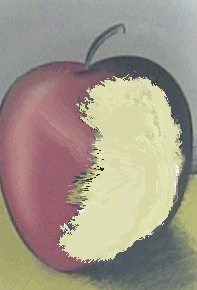|
| |
 |
|
| Graduate Level... |
| University of Windsor--POLICY ON AUTHORSHIP AND PLAGIARISM
1.4.2 POLICY ON AUTHORSHIP AND
PLAGIARISM
The University expects that all researchers will
adhere to the proper standards of intellectual honesty in the written or
spoken presentation of their work and will at all times acknowledge in a
suitable manner the contribution made by other researchers to their work, as
outlined in the Senate Policy on Authorship (available from the Clerk of the
Senate) and the Policy on Research
Personnel (available from the Office of
Research Services).
Plagiarism is defined as: "The act of
appropriating the literary composition of another, or parts of passages of
his/her writing, or the ideas or language of the same, and passing them off
as the products of one's own mind." (Black's
Law Dictionary)
It is expected that all graduate students will be
evaluated and graded on their individual merit, and all work submitted for
evaluation should clearly indicate that it is the student's own
contribution.
Graduate students often have to use the ideas of
others as expressed in written or published work in preparing essays,
papers, reports, theses and publications. It is imperative that both the
data and ideas obtained from any and all published or unpublished material
be properly acknowledged and their sources disclosed. Failure to follow this
practice constitutes plagiarism and is considered to be a serious offence by
this Faculty. Thus, anyone who knowingly or recklessly uses the work of
another person and creates an impression
that it is his or her own is guilty of plagiarism.
It is not permissible for an
essay or other paper to be submitted twice. It is expected that a thesis,
essay, paper or report has not been, and is not concurrently being,
submitted to any other faculty or university for credit toward any degree,
or to this Faculty for any other course. In exceptional circumstances
and with the prior agreement of the instructor, a student may use research
completed for one course as part of his or her written work for a second
course.
Where plagiarized work has
been submitted or where a student has submitted a paper for double credit,
an F grade shall be assigned by the instructor both to that assignment and
to the course. The student has the right to appeal this grade to the
Dean of Graduate Studies and Research, in accordance with the Graduate
Appeals Policy as stated in Senate Bylaw 51.B. In more serious cases, e.g.,
breach of the above regulation on more than one occasion, and upon
recommendation by the Dean of Graduate Studies and Research that
disciplinary action be taken, the matter will be submitted to the Judicial
Panel of the University of Windsor for appropriate sanctions, which include
admonition, censure, disciplinary probation, restitution, suspension or
expulsion, as set out in Senate Bylaw 31.
In case of any doubt, students are strongly urged
to consult with the instructor or thesis supervisor. In cases where students
feel that their intellectual property or copyrighted material has been
plagiarized, complaints should be made to the Dean of Graduate Studies and
Research.
|
| Undergraduate Level... |
POLICY ON
PLAGIARISM
ACADEMIC INFORMATION
Undergraduate Degree Regulations
2.4.22 POLICY ON PLAGIARISM
Plagiarism is defined as: "The act of
appropriating the literary composition of another, or parts of passages of
his or her writing, or the ideas or language of the same, and passing them
off as the products of one's own mind." (Black's Law Dictionary)
It is expected that all students will be
evaluated and graded on their individual merit and all work submitted for
evaluation should clearly indicate that it is the student's own
contribution.
Students often have to use the ideas of others
as expressed in written or published work in preparing essays, papers,
reports, theses and publications. It is imperative that both the data and
ideas obtained from any and all published or unpublished material be
properly acknowledged and their sources disclosed. Failure to follow this
practice constitutes plagiarism and is considered to be a serious offence.
Thus, anyone who knowingly or recklessly uses the work of another person and
creates an impression that it is his or her own, is guilty of plagiarism.
Plagiarism also includes submitting one's own
essay, paper, or thesis on more than one occasion. Accordingly, it is
expected that a thesis, essay, paper or a report has not been and is not
concurrently being submitted for credit for any other course. In exceptional
circumstances and with the prior agreement of the instructor, a student may
use research completed for one course as part of his or her written work for
a second course.
A confirmed incident of plagiarism will result
in a sanction ranging from a verbal warning, to a loss of credit in the
course, to expulsion. |
| |
|